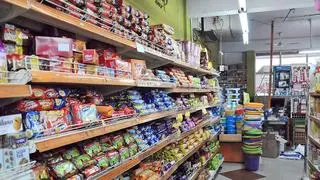Given a choice, where would you rather be — swimming in shark-infested waters or in a serene blue ocean?
That is the choice companies have to make. The idea here is surviving competition or identifying a niche in which to thrive in and where competition becomes irrelevant.
The Rs 22,000-crore Murugappa Group made its choice a few years ago: To swim in peace and grow.
Whether it is making fertilisers or cycles, it has formulated a business strategy that beats the competition not by outdoing them but by making them irrelevant.
Group’s Executive Vice-Chairman A. Vellayan shared some of these insights at a meeting on the concept of Blue Ocean Strategy organised by the Southern India Chamber of Commerce and Industry on Wednesday. A chance reading of a book on the topic caught his imagination, he said, and as the head of strategy for the group then, he decided to put some of these concepts into practice.
“Create a blue ocean for the Murugappa Group,” he said.
Tough business
The fertiliser business is a tough one — subsidy-driven, no reward for innovation and no incentive to invest in technology. He decided to implement the concept in Coromandel International after discussions with the business heads concerned, Vellayan said.
The company
* Created a retail chain of 500 full-service centres that sell products and services to farmers;
* Diversified its product base to include production of 250,000 tonnes of compost from municipal waste; and
* Set up two soluble fertiliser units, a non-subsidy source of revenue.
In the process, the company has grown closer to the farmers.
It has also expanded globally, with a phosphoric acid business and consultancy.
At the time the concept was kicked off within the Group, the fertiliser company’s shares of Rs 10 were trading at Rs 40; today its Re 1 shares are traded at Rs 240, and that too in a slow market, he pointed out. Over the next three years it aims to get less than half its revenue, about 40 per cent, from fertilisers, while the new areas will contribute over 60 per cent, says Vellayan. A significant target, considering that in 2011-12 fertiliser sales accounted for 90 per cent of Coromandel International’s revenue of over Rs 9,800 crore.
New biz to contribute more
By 2015, the company plans to step up its compost production to one million tonnes. The soluble fertiliser business is a 60,000-tonne market with 90 per cent being imported.
The company is set to tap this segment with production facilities in Visakhapatnam and Kakinada. Every tonne of soluble fertiliser can replace seven tonnes of chemical fertilisers, Vellayan said.
A similar thought process has gone into the cycle business which, traditionally, was a fragmented sector
. The Group’s BSA Go Stores have changed the cycle-buying experience with their modern ambience. The diversification into sports goods and the fitness segment has also helped, Vellayan said.
In financial services, Chola Asset Finance has targeted speed of service as a differentiator. It has nearly 1,000 full-service branches in Tier III and IV towns to be close to its customers, he said.
balaji.ar@thehindu.co.in








Comments
Comments have to be in English, and in full sentences. They cannot be abusive or personal. Please abide by our community guidelines for posting your comments.
We have migrated to a new commenting platform. If you are already a registered user of TheHindu Businessline and logged in, you may continue to engage with our articles. If you do not have an account please register and login to post comments. Users can access their older comments by logging into their accounts on Vuukle.